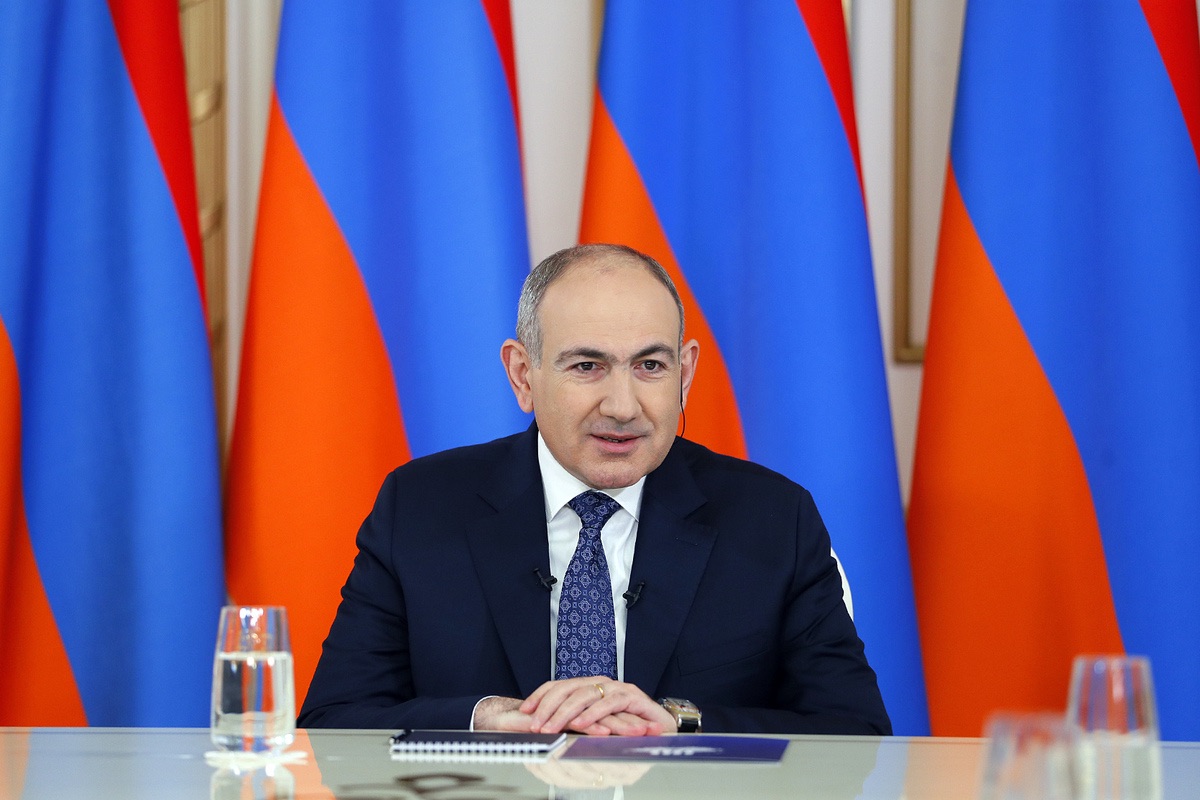In an interview given to Turkish media on March 11 aired on March 13 on Prime Minister’s official website, PM Nikol Pashinyan addressed several key issues, including the Armenian Genocide, the notion of “Western Azerbaijan,” and the prospects for peace with Azerbaijan.
Regarding the Armenian Genocide, or Medz Yeghern as he called it, Pashinyan clarified Armenia’s official position, stating, “Our official position is that international recognition of the Armenian Genocide is not among our foreign policy priorities today. This is an official formulation, but there are issues surrounding it that require continuous clarification.”
He emphasized that for Armenians, Medz Yeghern is an indisputable historical truth, and it cannot be denied.
However, he stressed that the focus should be on addressing contemporary challenges, particularly in terms of Armenia’s security and regional stability.
Pashinyan also addressed the issue of Western Armenia, stating that in his view, “Western Armenia is the Armavir region of the Republic of Armenia, and specific settlements in the Armavir and Shirak regions.”
The Prime Minister expressed his desire to normalize relations with Turkey, emphasizing the importance of dialogue and mutual understanding.
“We must think first of all about regional peace. The opportunity to change the perception and the formulation of issues with Turkey is real. It’s not a matter of if, but when,” he stated.
However, a critical issue raised during the interview was Azerbaijan’s ongoing claim to what it calls “Western Azerbaijan.”
Pashinyan rejected this idea, stating, “Azerbaijan calls ‘Western Azerbaijan’ approximately 60-70% of the sovereign territory of the Republic of Armenia and invites us to discuss the issue of ‘Western Azerbaijan,’ while calling 60-70% of our territory ‘Western Azerbaijan.’ We say there is no ‘Western Azerbaijan’ in Armenia.”
He further explained that if Azerbaijan wanted to look for “Western Azerbaijan,” it would find it in the regions of Kazakh, Aghstafa, Getabey, Kelbajar, Lachin, Zangelan, and Kubatlu in Azerbaijan.
“Here is Western Azerbaijan,” Pashinyan said. “There is no Western Azerbaijan on this side of the line.”
He also addressed the so-called “Zangezur Corridor,” calling it unacceptable for Armenia. “The ‘Zangezur Corridor’ is unacceptable because it contains a territorial claim against the Republic of Armenia,” Pashinyan stated.
He reiterated that Armenia is open to discussions on regional transportation and economic communications under the conditions of sovereignty, territorial integrity, and reciprocity.
“We are ready for certain simplifications to make regional communications a reality, and we have already made a specific proposal for the restoration of the railway connection,” he said. “We are waiting for Azerbaijan’s response.”
The Prime Minister concluded by reiterating Armenia’s commitment to peace and stability, both within the region and in relations with Azerbaijan. “If we want to build peace, it is impossible to build anything on a flowing region. We need a clear understanding of what is Western Armenia and what is Western Azerbaijan,” he stated.
He also noted that Armenia and Azerbaijan have already agreed to recognize each other’s territorial integrity, based on the 1991 Alma-Ata Declaration, and this has been confirmed in the draft peace treaty.
“The issue is not what we need to build, but not to destroy what has been achieved,” he said. Pashinyan pointed out that Armenia and Azerbaijan have already signed and ratified an international document and demarcated their borders, marking a significant step forward. He stressed the need for consistency in efforts to preserve this peace process.
Regarding Turkey’s role, Pashinyan acknowledged the complexities in Armenia-Turkey relations but affirmed that Turkey could play a significant role in supporting stability in the South Caucasus.
He stated that Turkey has expressed support for a peace treaty between Armenia and Azerbaijan, which Armenia welcomed.
In conclusion, Pashinyan reiterated the importance of international partners being aware of the peace process. He confirmed that while Armenia and Azerbaijan are working bilaterally on resolving their issues, they are also actively sharing information with their international partners to ensure transparency and support for the peace efforts.


